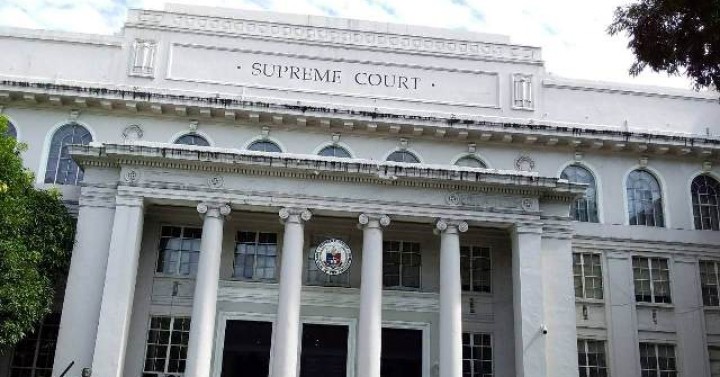
MANILA – The Supreme Court (SC) on Wednesday said an en banc session has been scheduled on Friday (April 17).
In a message to reporters, SC Public Information Office chief Brian Keith Hosaka, quoting SC en banc clerk of court Edgardo Aricheta, confirmed the meeting.
“However, I am not privy as to the agenda for the said meeting,” Hosaka said.
He added that it is still unclear whether the meeting will be held at the en banc hall of the SC in Padre Faura or it will be conducted online.
“We still don’t know what platform will be used. Our MISO (Management Information Systems Operations) is handling the technical aspect taking into consideration security concerns,” Hosaka said.
Pending before the high court are a number of suits urging action such as a petition filed on behalf of 22 persons deprived of liberty (PDLs), a mandamus petition seeking on disclosure of President Rodrigo Duterte’s medical records, and pending incidents on quo warranto suit filed by solicitor General Jose Calida against ABS-CBN that was originally set for April 15.
Courts throughout the country remain closed following the extension of the enhanced community quarantine (ECQ) by President Rodrigo Duterte until the end of April.
In an earlier memorandum, Chief Justice Diosdado Peralta suspended the SC’s summer session in Baguio City originally scheduled from April 12 to May 1.
Peralta noted the surge in the number of coronavirus disease 2019 (Covid-19) cases in the country had led to the declaration of a state of public health emergency and state of calamity.
The temporary physical closure of all courts nationwide took effect on March 23.
Despite the closure, courts are functioning and are mandated to accept the online filing of all cases — criminal, commercial, and family — and petitions and posting of bail during the period of a health emergency.
Justices and trial court judges — while working from home — have been directed to immediately evaluate and act on the cases filed online.
A skeletal staff is required to report to the court offices only to act on urgent cases, particularly those filed in connection with the implementation of the ECQ.